Five Questions to Consider Before You Apply.

WHETHER you a re a parent or a professor, hold a nine-to-five job or spend most days doing something else entirely, there are many reasons for just about any writer to attend a writers residency. One of the most valuable among them is the chance to shift your schedule and your mind-set so that, for a week or a month or even just a few days, you can prioritize writing above all else in your life. In The One Thing: The Surprisingly Simple Truth Behind Extraordinary Results (Bard Press, 2013), Gary Keller and Jay Papasan suggest posing one driving question in order to focus on what’s most important: “What’s the one thing you can do such that by doing it everything else will be easier or unnecessary?” For writers, a residency or retreat may be that one thing, offering an uninterrupted period of time during which writing is the most important thing each day, so that the rest of what we usually do becomes, at least temporarily, less necessary.
In addition to the practical usefulness of extended time devoted to writing, a residency can be a professional stepping-stone as well. Being awarded a residency is a valuable line on one’s résumé, a helpful experience to include in grant applications, and a good way to network and find a lasting community. Although many writers wait until they are well established to apply to high profile, highly competitive residencies like Yaddo, the MacDowell Colony, or the Millay Colony, there are great reasons to seek out such opportunities at any stage of one’s writing life.
This story is from the {{IssueName}} edition of {{MagazineName}}.
Start your 7-day Magzter GOLD free trial to access thousands of curated premium stories, and 9,000+ magazines and newspapers.
Already a subscriber ? Sign In
This story is from the {{IssueName}} edition of {{MagazineName}}.
Start your 7-day Magzter GOLD free trial to access thousands of curated premium stories, and 9,000+ magazines and newspapers.
Already a subscriber? Sign In

Literary MagNet
When Greg Marshall began writing the essays that would become his memoir, Leg: The Story of a Limb and the Boy Who Grew From It (Abrams Press, June 2023), he wanted to explore growing up in Utah and what he calls \"the oddball occurrences in my oddball family.\" He says, \"I wanted to call the book Long-Term Side Effects of Accutane and pitch it as Six Feet Under meets The Wonder Years.\" But in 2014 he discovered his diagnosis of cerebral palsy, information his family had withheld from him for nearly thirty years, telling him he had \"tight tendons\" in his leg. This revelation shifted the focus of the project, which became an \"investigation into selfhood, uncovering the untold story of my body,\" says Marshall. Irreverent and playful, Leg reckons with disability, illness, queerness, and the process of understanding our families and ourselves.
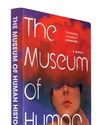
THE MEUSEUM OF HUMAN HISTORY
READING The Museum of Human History felt like listening to a great harmonic hum. After I finished it I found the hum lingering in my ears. Its echo continued for days.
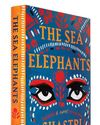
The Sea Elephants
SHASTRI Akella's poised, elegant debut, The Sea Elephants, is a bildungsroman of a young man who joins a street theater group in India after fleeing his father's violent disapproval, the death of his twin sisters, and his mother's unfathomable grief.
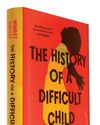
The History of a Difficult Child
MIHRET Sibhat's debut novel begins with God dumping rain on a small Ethiopian town as though. He were mad at somebody.
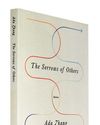
The Sorrows of Others
AS I read each story in Ada Zhang’s brilliant collection, The Sorrows of Others, within the first few paragraphs— sometimes the first few sentences— I felt I understood the characters intimately and profoundly, such that every choice they made, no matter how radical, ill-advised, or baffling to those around them, seemed inevitable and true to me.
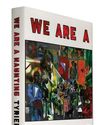
We Are a Haunting
TYRIEK White’s debut novel, We Are a Haunting, strikes me as both a love letter to New York City and a kind of elegy.

RADICAL ATTENTION
IN HER LATEST BOOK, THE LIGHT ROOM: ON ART AND CARE, PUBLISHED BY RIVERHEAD BOOKS IN JULY, KATE ZAMBRENO CELEBRATES THE ETHICAL WORK OF CAREGIVING, THE SMALL JOYS OF ORDINARY LIFE, AND AN ENGAGEMENT WITH THE NATURAL WORLD WITHIN HUMAN SPACES.

The Fine Print
HOW TO READ YOUR BOOK CONTRACT

First
GINA CHUNG'S SEA CHANGE
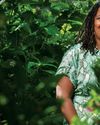
Blooming how she must
WITH ROOTS IN NATURE WRITING, ENVIRONMENTAL JUSTICE, POETRY, AND PHOTOGRAPHY, CAMILLE T. DUNGY'S NEW BOOK, SOIL: THE STORY OF A BLACK MOTHER'S GARDEN, DELVES INTO THE PERSONAL AND POLITICAL ACT OF CULTIVATING AND DIVERSIFYING A GARDEN OF HERBS, VEGETABLES, FLOWERS, AND OTHER PLANTS IN THE PREDOMINANTLY WHITE COMMUNITY OF FORT COLLINS, COLORADO.